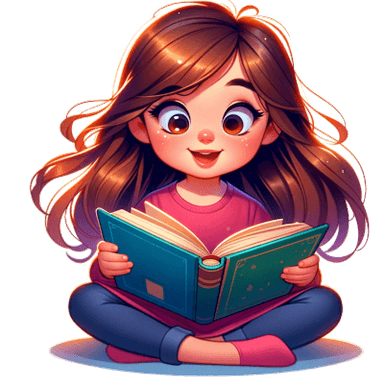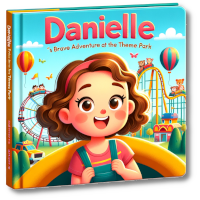Reading with children
a blog by Magic Tales

The Role of Children's Books in Fostering Emotional Intelligence: Understanding Nature
Walk into any bookstore, and you're sure to notice racks upon racks of books ranging from adventure, fantasy, and science to realms of poetry and realism. Among them, one genre stands out significantly for its potential to influence young minds – children's literature. Amid all the varying categories, books about nature or the 'natural world' possess a sublime capacity to foster not only knowledge and understanding about our environment but also nurture emotional intelligence in children.
Understanding Nature through Children's Books
Books focused on nature teach children about the surrounding world in a unique, engaging, but importantly, relatable way. Through colorful illustrations and gripping narratives, nature-themed stories immerse young readers in the diversity, beauty, and balance of the natural world. They ignite curiosity, inspire exploration, and evoke a sense of responsibility to protect and respect the environment.
One might ask, how does learning about nature relate to developing a child's emotional intelligence? The bond shared between children and nature is a deep and emotional connection. As children interact with nature, either practically or through stories, complex emotions such as awe, excitement, tranquility, or even fear and sadness can emerge.
Fostering Emotional Intelligence
Emotional intelligence refers to the ability to understand, use, and manage our own feelings in positive ways to relieve stress, communicate effectively, empathize with others, and overcome challenges. Books, be it about nature or another theme, offer rich emotional experiences. They expose children to a variety of situations, perspectives, and feelings, contributing significantly to shaping their emotional intelligence.
For instance, when children encounter a story where a little bird struggles to fly, they glimpse a taste of adversity. They empathize with the bird’s plight, learn about the nature of resilience in face of difficulties, and they cheer with joy when the bird finally spreads its wings. The range of emotions they experience during the journey helps build their emotional comprehension and empathy.
Nature Books for Emotional Growth
Titles like 'The Very Hungry Caterpillar' by Eric Carle or 'We Planted a Tree' by Diane Muldrow not only educate children about natural processes, they subtly expose children to themes like transformation, growth, patience, and hope. Seeing nature’s cycle through seasons, witnessing a caterpillar turn into a butterfly, or watching a tiny seed grow into a tree allows children to mirror these processes within their emotions. They learn to cope with changes, adapt like creatures in nature, and develop resilience.
In conclusion, incorporating nature-based children's books into a child's reading routine paves the way for developing crucial life skills like empathy, resilience, and emotional intelligence. They not just make children eco-conscious, but also infuse their hearts and minds with emotions, making them emotionally intelligent beings. As parents, educators, or caregivers, it is essential that we continue to explore and promote this genre of children's literature for our young readers.
Want a personalized book to read with your child about Understanding Nature?
Takes as quickly as 30 seconds to create
Create a book about Understanding Nature

